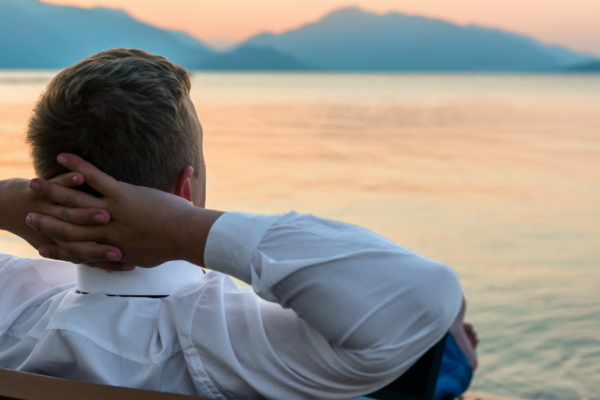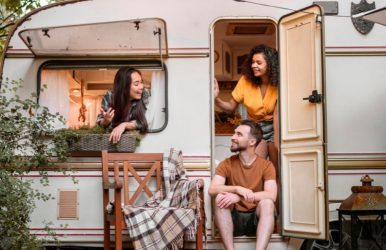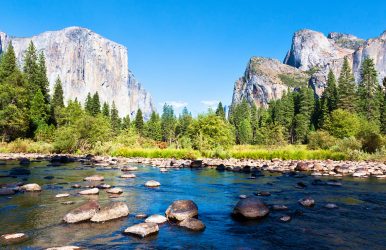Your Guide To Buying A Holiday Caravan In Lincolnshire
BY Sibashree Nov 6, 2025
The idea of having a personal escape, somewhere you can just throw a bag in the car and go when life gets overwhelming, is something a lot of us quietly dream about. But owning a second house? Yeah, that’s usually well beyond what most of us want to spend. A holiday caravan in Lincolnshire, though, offers that sweet middle ground. You get your own comfortable retreat without the huge mortgage or upkeep that comes with a traditional property. And honestly, Lincolnshire is one of those places that just fits the vibe. Calm coastal towns, a slower pace, and countryside that actually helps you breathe. Before jumping in, though, it’s important to know the practical details so your “dream getaway” doesn’t turn into a hassle. Why Choose Lincolnshire For Your Holiday Caravan? Lincolnshire just has a really nice mix of places to explore. If you’re after a classic seaside break, you’ve got Skegness, Mablethorpe, and Chapel St Leonards along the coast. Prefer something quieter and scenic? The Lincolnshire Wolds has rolling countryside that’s perfect for long walks and bike rides. And if you want a bit of history or culture, Lincoln city is right there with its castle, cathedral, and pretty steep streets. Another perk is how easy it is to get to the county. Whether you’re coming from the Midlands, Yorkshire, or even East Anglia, it’s the sort of journey you can make without planning a whole military mission. And that makes spontaneous “let’s just go” weekends actually doable, which is kind of the point of owning a holiday caravan in the first place. Understanding Holiday Caravan Ownership Let’s talk about the site fees, running costs, and licensing restrictions. These are crucial elements to check before you own a caravan. 1. Site Fees And Running Costs Owning a holiday caravan is a different setup from buying a standalone home. You own the caravan itself, but you’ll pay the holiday park where it’s located a yearly pitch fee. These can range anywhere from around £2,000 to £5,000, depending on how fancy the park is and where it’s located. Those fees usually include things like ground rent, drainage, water, and sometimes access to entertainment spaces or swimming pools. Extras like gas, electricity, insurance, and normal upkeep will still be on you. The key is to think in terms of annual cost, not just the price tag on the caravan. 2. Licence Restrictions These caravans are meant for holiday use only and are not for full-time living. Most parks have seasonal open months, usually spring through late autumn. During the closed months, you can’t stay in the caravan, even if you want to. Some parks allow caravans to stay in place all year, while others require them to be moved or stored. Just make sure the park’s operating schedule fits how you actually plan to use it. If you’re after permanent accommodation, this won’t tick that box. Choosing The Best Holiday Caravan In Lincolnshire Consider the size and layout of the caravan, assess the modern amenities and features, and compare the pros and cons of the new vs. pre-owned caravans to choose the right one. 1. New Vs. Pre-Owned Brand new caravans look modern, come with warranties, and feel fresh, which is definitely appealing. But just like cars, they drop in value fast right after purchase. However, when exploring caravans for sale in Lincolnshire, you will find that pre-owned caravans usually offer better value because that big chunk of depreciation has already happened. You can get great layouts and features without paying “brand new” prices. The main thing is to check for damp, structural issues, and any repairs the previous owner may have skipped. 2. Size And Layout Considerations Think about who will be using the caravan. A couple might be perfectly happy in a one-bedroom layout, while families often need extra space so they’re not tripping over each other, especially on rainy days. Layout makes a big difference as some caravans feel surprisingly roomy because of open-plan kitchens and living spaces, while others prioritise separate bedrooms for privacy. Storage, kitchen practicality, and comfortable seating matter more than people expect. 3. Modern Features And Amenities Caravans these days can be surprisingly well equipped with central heating, proper double glazing, built-in appliances, and even decent entertainment setups. If you're mostly using it in summer, you may not care too much about heating. If you love off-season breaks, insulation and heating will matter a lot. Outdoor decking can make a smaller interior feel much bigger, too. Selecting The Right Holiday Park For A Holiday Caravan In Lincolnshire The best caravan in the world means nothing if getting to it feels like a chore. Try to pick a park within a comfortable drive so you’ll actually use it regularly. Also, think about the vibe you want. Parks geared toward families will have entertainment, play areas, the works. If you're after peace and quiet, look for smaller or more nature-focused sites. 1. Park Facilities And Atmosphere Visit in person if you can. Walk around. Sit for a bit. Notice the general upkeep and how the place feels. Some parks feel welcoming and well managed, others… not so much. Chatting with current owners can be surprisingly insightful — people will usually tell you the truth. 2. Management And Reputation A well-run park with stable ownership generally means fewer surprises later. Check whether future development plans could affect your pitch, privacy, or view. You don’t want to wake up to construction noise or a new clubhouse blocking your sunset. Financing Your Purchase Of A Holiday Caravan In Lincolnshire Most parks and dealers offer finance options, though the interest varies. Sometimes specialist caravan finance providers give better terms, so it’s worth comparing. Be realistic about monthly payments and remember to factor in running costs, not just the purchase loan. It’s much nicer to enjoy your caravan without feeling financially squeezed by it. Buying A Holiday Caravan In Lincolnshire: Frequently Asked Questions (FAQs) Here are the frequently asked questions and answers about buying a holiday caravan in Lincolnshire. 1. Can I Rent Out My Caravan? Some parks allow subletting, some don’t. Some will even manage rentals for you (but take a cut). Make sure you understand the rules before you buy if rental income is part of your plan. 2. What About Selling Later? You can usually sell privately or through the park, though parks often take a commission. Some have rules about advertising or who can buy. Good to know upfront. 3. How Long Do Caravans Last? With care, 15–20 years is pretty normal. Damp is the biggest enemy — fix issues right away and keep up with basic maintenance, especially near the coast. 4. Are Caravans A Financial Investment? Not really. They depreciate. Think of it more as an investment in lifestyle and memories rather than something that appreciates in value. 5. Do I Need Insurance? Yes. Full caravan insurance that covers theft, weather damage, and liability. Many parks require proof of coverage. Making Your Caravan Dream Reality Owning a holiday caravan in Lincolnshire can be a really rewarding escape option. It’s personal, flexible, and easier to use, often compared to faraway holiday homes. As long as you understand the ongoing costs, choose a park and caravan that match how you’ll actually use it, and think long-term about maintenance, you’ll be set up for years of stress-free weekends away. Focus on what suits your life rather than just the cheapest price, and your caravan will feel like a second home in no time.














